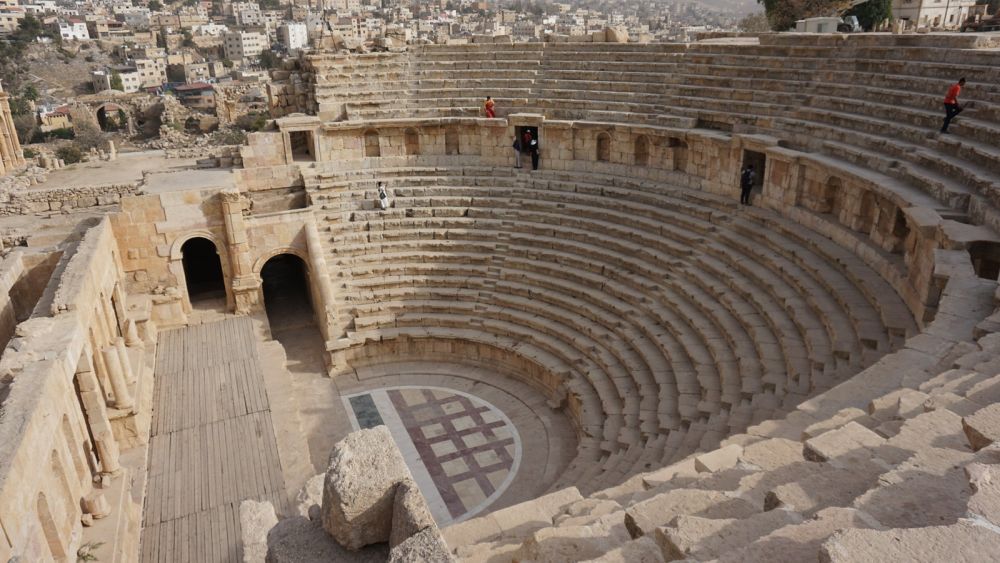

Located in the heart of Jerash, a city noted for its well-preserved Roman architecture, the North Theater stands as a testament to the grandeur of past civilizations and the enduring appeal of historical tourism in Jordan. This ancient structure, dating back to the 2nd century AD, has attracted scholars, history enthusiasts, and tourists from all corners of the globe, making it a significant contributor to the growth of Jordanian tourism over the years.
The North Theater was originally built during the reign of Emperor Trajan, with subsequent expansions under Emperor Septimius Severus. Its initial construction in 165 AD, with seating for more than 1600 spectators, demonstrates the importance of performance arts in the ancient city of Gerasa, one of the Decapolis cities. As the region was known for its cultural and trading accomplishments, the North Theater became a hub for public gatherings, political events, and artistic performances, a role it has reprised in modern times with annual cultural events and festivals.
With the advent of tourism in the 19th and 20th centuries, efforts to restore and conserve the North Theater and other monuments in Jerash became a priority for both the Jordanian authorities and international heritage organizations. These undertakings have allowed the North Theater to endure as a significant draw for tourists, an embodiment of the city's Roman past and its current cultural significance.
In recent years, Jordan has embraced sustainable tourism, aiming to preserve its archaeological treasures while providing enriching experiences for visitors. The North Theater, along with the entire archaeological park of Jerash, has been integrated into this sustainable tourism model. Visitors can enjoy immersive historical tours, participate in local cultural events, and witness re-enactments of Roman legionnaire drills, chariot races, and traditional music performances, contributing to the living history of this ancient site.
The enduring appeal of the North Theater has significantly impacted the local economy, with the tourism sector providing employment and supporting small businesses in the surrounding area. It has also played a role in fostering a deeper appreciation for Jordan's historical and cultural heritage among both natives and tourists alike.
Travelers to the North Theater today can explore the site as part of guided tours or independently. Interpretative signage and on-site guides offer insights into the history of the theater and its place within the ancient city. The Jerash Festival of Culture and Arts, a prominent annual event, sees the North Theater and other landmarks in the city come alive with a colorful display of Jordan's rich traditions.
Encouraging responsible tourism practices, ensuring the preservation of its relics, and offering a window into the Roman world, the North Theater's role in Jordan's tourism history continues to evolve, promising to intrigue and inspire future generations of travelers.